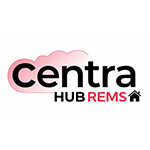Description

RealEstatePro

dotloop
Comprehensive Overview: RealEstatePro vs dotloop
RealEstatePro and dotloop are platforms within the real estate industry, each offering distinct functionalities tailored to the needs of real estate professionals. Here's an overview of each, highlighting their primary functions, target markets, market share, user base, and differentiating factors:
RealEstatePro
a) Primary Functions and Target Markets:
- Primary Functions:
- RealEstatePro is typically a broad term that can refer to various software solutions designed for real estate professionals, aiming to streamline processes such as property listings, client management, marketing, and transaction management.
- Some specific platforms under this umbrella may offer tools for customer relationship management (CRM), property marketing, lead generation, and analytics.
- Target Markets:
- Real estate agents and brokers
- Real estate agencies and firms
- Property managers
- Real estate marketers
b) Market Share and User Base:
- The term "RealEstatePro" can encompass a variety of tools and software solutions, which means its market share is dispersed among different platforms depending on specific functionalities.
- The user base includes individual real estate agents, brokers, and firms looking for all-in-one solutions or specific tools to enhance their operations.
c) Key Differentiating Factors:
- Broad range of functionalities, often modular, allowing users to choose based on their specific needs.
- Integration capabilities with other tools and platforms in the real estate ecosystem.
- Customizability to fit the branding and operational workflow of specific agencies or brokers.
dotloop
a) Primary Functions and Target Markets:
- Primary Functions:
- dotloop is a transaction management platform primarily focused on streamlining, managing, and closing real estate transactions.
- It offers tools for document management, digital forms, e-signatures, compliance, and collaboration between buyers, sellers, and agents.
- Target Markets:
- Real estate agents and brokers
- Real estate transaction coordinators
- Brokerages looking for efficient transaction management solutions
b) Market Share and User Base:
- dotloop is known to be a market leader in real estate transaction management, capturing a significant portion of the market.
- Its user base predominantly consists of real estate agents and brokerages in North America seeking efficient and compliant transaction management solutions.
c) Key Differentiating Factors:
- Focus on transaction management and digital signatures creates a seamless workflow for transactions.
- High compliance standards and easy tracking of transaction progress.
- Robust integration with Multiple Listing Services (MLS), CRM systems, and other real estate tools.
- User-friendly interface designed to simplify the collaboration between all parties involved in a transaction.
Comparison and Conclusion:
RealEstatePro serves as an overarching term for various real estate tools, offering broad functionalities with differing emphasis depending on the specific platform. In contrast, dotloop is a specialized tool focused on transaction management. Dotloop has established itself as a frontrunner in this niche owing to its comprehensive transaction management features and strong compliance measures. Users typically choose dotloop for its specific capabilities in managing real estate transactions efficiently, while RealEstatePro platforms might be chosen for broader real estate business management needs.
Contact Info

Year founded :
2020
Not Available
Not Available
Spain
http://www.linkedin.com/company/realestatepro1

Year founded :
2008
+1 513-257-0550
Not Available
United States
http://www.linkedin.com/company/dotloop
Feature Similarity Breakdown: RealEstatePro, dotloop
Both RealEstatePro and Dotloop are real estate transaction management platforms designed to streamline the buying and selling process. While they share some core features, their user interfaces and unique capabilities can differentiate them in the market.
a) Core Features in Common
-
Transaction Management: Both platforms offer comprehensive tools for managing real estate transactions. This includes organizing documents, setting up tasks, and tracking progress.
-
Document Creation and E-signatures: Both products facilitate the creation of transaction documents and allow for legally binding electronic signatures, reducing the need for physical paperwork.
-
Collaboration Tools: RealEstatePro and Dotloop provide features that allow agents, brokers, and clients to communicate and collaborate effectively within the platform, ensuring all parties are informed and synchronized.
-
Compliance and Audit Trails: They help ensure compliance with legal and regulatory requirements by maintaining detailed audit trails that document all transaction changes and activities.
-
Templates and Checklists: Both platforms offer customizable templates and checklists for various transaction types, aiding in standardizing processes and ensuring all necessary steps are followed.
-
Cloud-Based Access: These platforms are accessible online, allowing users to manage transactions from anywhere with an internet connection.
b) User Interface Comparison
-
RealEstatePro: This platform typically focuses on offering a clean and straightforward interface with intuitive navigation. The emphasis is on simplicity and ease of use, appealing to users who prefer a less cluttered workspace.
-
Dotloop: Known for its user-friendly design, Dotloop provides a modern interface that is arguably more dynamic and visually appealing. It aims to facilitate every step of the transaction process through a process-oriented approach that breaks activities down into "loops."
c) Unique Features That Set Them Apart
-
RealEstatePro:
- Integrated CRM Features: It may offer more robust CRM (Customer Relationship Management) capabilities, allowing agents to manage and track leads and customer interactions within the same platform.
- Advanced Analytics: RealEstatePro might include more detailed reporting and analytics features, giving agents better insights into their performance and transaction trends.
-
Dotloop:
- Loop System: Dotloop's unique selling point is its "loop" system, which organizes each transaction like a project to be completed, with steps and people involved in each loop.
- Premium Document Editor: The platform includes advanced document editing capabilities directly within the app, minimizing the need for additional software.
- Broker Dashboard: It might offer a specialized dashboard for brokers to oversee team activity, transaction status, and overall performance metrics across their organization.
Each platform has its strengths, and the choice between them may depend on specific needs such as CRM requirements, user interface preferences, or unique workflow features.
Features

Not Available

Not Available
Best Fit Use Cases: RealEstatePro, dotloop
When considering the best fit use cases for RealEstatePro and dotloop, it's important to understand the unique features and strengths of each platform, as well as the specific needs they address within the real estate industry. Here's a breakdown for each:
RealEstatePro
a) Best Fit for RealEstatePro:
-
Real Estate Agencies and Brokerages: RealEstatePro is often best suited for small to medium-sized real estate agencies and brokerages that require a comprehensive suite of tools for property management, listings, and client relationship management. It's designed to streamline operations specific to the real estate market.
-
Property Management Firms: Companies focused on property management can leverage RealEstatePro's features to manage rentals, track tenants, and maintain property records efficiently.
-
Independent Realtors and Agents: This platform is ideal for independent realtors and agents who need an integrated system to manage sales, marketing, and client interactions without the need for multiple disparate tools.
-
Businesses Seeking CRM Solutions: RealEstatePro often includes CRM capabilities tailored to the real estate industry, helping businesses manage leads, customer interactions, and follow-ups effectively.
d) Industry Vertical and Company Sizes:
RealEstatePro can cater to a variety of verticals within the real estate sector, including residential, commercial, and mixed-use properties. It's flexible enough to serve small and medium-sized companies, as well as independent contractors, due to its scalable features and solutions.
dotloop
b) Preferred Scenarios for dotloop:
-
Real Estate Teams and Brokerages Focused on Transaction Management: dotloop shines in scenarios where real estate teams and brokerages need a robust system for managing transactions, from document creation and editing to closing.
-
Companies Prioritizing Digital Document Management and E-Signatures: dotloop is particularly valuable for businesses that prioritize the digitization of paperwork, offering e-signatures and document sharing capabilities that facilitate faster closings.
-
Agencies Required to Maintain High Compliance Standards: For organizations that need to adhere to strict compliance and regulatory standards, dotloop provides tools for auditing and tracking document history efficiently.
-
Collaborative Real Estate Projects: dotloop is ideal for collaborative projects involving multiple stakeholders needing a centralized space to access and update documents.
d) Industry Vertical and Company Sizes:
dotloop caters to a broad range of company sizes, from small teams to large brokerages, due to its focus on transaction management. It is particularly well-suited for those working in regions with high transaction volumes or requiring rigorous compliance tracking. While it primarily serves residential real estate, its robust document management features can be adapted for use in commercial real estate transactions as well.
Conclusion
-
RealEstatePro serves broader real estate business management needs, offering solutions that include CRM and property management, making it versatile for various company sizes in residential and commercial real estate.
-
dotloop specializes in transaction and document management, excelling in scenarios demanding high efficiency and compliance in paperwork processing, making it suitable for any sized team or brokerage focused on expediting and securing real estate transactions.
Pricing

Pricing Not Available

Pricing Not Available
Metrics History
Metrics History
Comparing teamSize across companies
Conclusion & Final Verdict: RealEstatePro vs dotloop
Conclusion and Final Verdict for RealEstatePro vs. dotloop
When comparing RealEstatePro and dotloop, it’s essential to consider a variety of factors such as pricing, features, user interface, customer support, and integration capabilities to determine which product offers the best overall value for real estate professionals.
a) Best Overall Value:
Dotloop tends to offer the best overall value for most real estate professionals due to its comprehensive feature set, ease of use, and strong integration capabilities. Dotloop’s strength lies in its complete transaction management platform that caters to agents, brokers, and teams efficiently, simplifying paperwork and enhancing productivity through seamless integrations with other real estate tools.
b) Pros and Cons:
RealEstatePro
Pros:
- Industry-specific tools: Designed specifically for real estate, offering specialized features that cater solely to real estate professionals.
- Customer Support: Generally praised for providing excellent customer support with responsive helplines and training resources.
- Customization: Offers a higher degree of customization options that can be tailored to specific needs of larger brokerages.
Cons:
- Complexity: Can be a bit overwhelming for new users due to the multitude of features.
- Cost: Sometimes priced higher than competitors, potentially leading to more significant expenses for smaller teams or independent agents.
- Integration: Limited in integration with third-party applications compared to some competitors.
Dotloop
Pros:
- Ease of Use: User-friendly interface that is intuitive for both new and experienced users.
- Comprehensive Features: Offers a full range of features covering document management, e-signatures, compliance, and reporting.
- Integration: Excellent compatibility with various real estate CRM systems and other third-party applications.
- Collaboration: Strong collaborative tools that allow for seamless teamwork between agents and clients.
Cons:
- Cost Structure: May not be as cost-effective for individual agents or small teams compared to larger brokerages.
- Learning Curve: While generally easier to use, users may still face an initial learning curve when navigating all the features and integrations.
c) Recommendations for Users:
-
Identify Your Specific Needs: Agents and brokerages should assess their specific needs, such as the size of the team, level of needed customization, and primary functionalities required from the software. If you need robust customization and extensive support and have a larger budget, RealEstatePro might be suitable.
-
Consider Integration Requirements: If integration with other tools is crucial—particularly if you use a range of third-party applications—dotloop is likely the better choice due to its expansive integration capabilities.
-
Evaluate Ease of Use vs. Features: For users or teams that prioritize an easy-to-use interface and streamlined collaboration tools, dotloop is preferable. Conversely, if your operations require more complex functionality and customization, RealEstatePro may provide more advantageous features.
-
Budget Considerations: Smaller teams and independent agents might find dotloop more cost-effective, but for firms requiring a high level of customization and ready to invest more, RealEstatePro offers significant value.
Ultimately, the choice between RealEstatePro and dotloop will depend on your unique business requirements, the size of your operation, and budget constraints. However, as a comprehensive and user-friendly platform, dotloop is generally positioned as offering the best overall value for most users looking to streamline real estate transactions effectively.
Add to compare
Add similar companies



